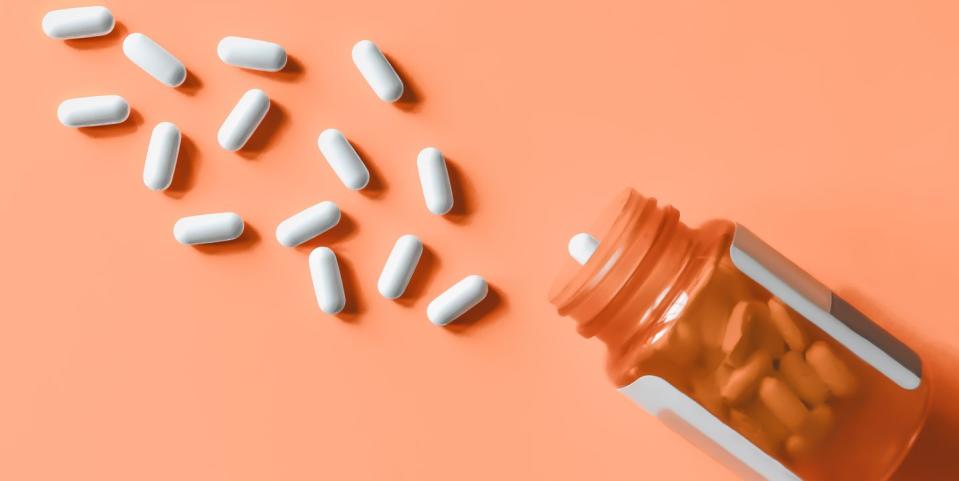Two vitamins we should all be taking as we age

The vast array of supplements on offer at health food stores and in high street chemists is pretty overwhelming. So how do you work out what's actually worth taking?
Red has previously spoken to a GP about the 5 supplements she takes and recommends. Now a professor of nutrition has narrowed it down further by saying that there's two vitamins we should all consider taking as we get older: vitamin B12 and vitamin D3.
Katherine Tucker, director of the Centre for Population Health at the University of Massachusetts Lowell, told US site AARP Bulletin that even if we follow a healthy diet, it's likely we will be deficient in B12 and D3.
This is because these vitamins are harder to absorb as we age, and the plant-based foods many of us are eating now aren't rich in them.
Watch: This yummy smoothie is packed with immune boosting vitamins
Both vitamins are essential for a healthy body and mind. B12 is responsible for nerve-function, and a deficiency has been linked to low energy, anaemia, depression and dementia.
Those who eat a meat-based diet are probably getting enough B12, but absorption is the issue because our stomachs produce less acid as we age. Tucker told AARP that 'generally, people should start paying attention to this after age 50'.
Adding a supplement, like the one below, can make all the difference. Just be sure to speak to your GP first, especially if you are on any medication.
When it comes to D3, approximately 1 in 5 people have low vitamin D levels in the UK. This impacts everything from the health of our skin, to our moods and our immune system. Along with our ability to process calcium for strong bones.
Natural sunlight is a brilliant source of vitamin D, but – once again – as we age, our skin loses its ability to turn those sunny days into the sunshine vitamin. We also get less sunlight here in the UK in the winter which doesn't help.
Taking a supplement (like the one above) can really help boost our levels of D3, but it's important to speak to a doctor first if you're on medication.
A doctor has helpfully shared the skin signs you could be lacking in vitamin D here.
Watch: Simple steps to a healthier life
You can read AARP's full article here
You Might Also Like

 Yahoo Movies
Yahoo Movies 
